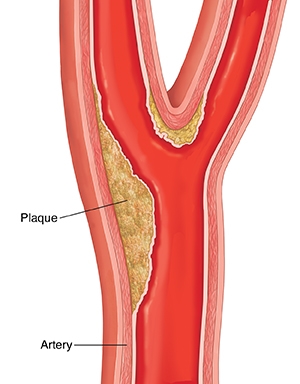Every adult has experienced nosebleeds at least once. The nose is generally a very vulnerable place: its mucous membranes are literally lined with a network of thinnest capillaries, which are easily damaged. Therefore, if from time to time bleeding from the nose is not scary - there may be external or purely physiological reasons for this. But if this happens all the time, you need to take immediate action.
What not to do
 Many people get scared, especially if the nosebleeds remain on the pillow almost every day. They start calling friends, looking on the Internet for an answer to the question of what to do if the nose bleeds frequently. And in the end, the wrong actions only exacerbate the situation. Therefore, it is better to remember first of all what cannot be done with nosebleeds, even if such advice is given by a good friend or an all-knowing search engine:
Many people get scared, especially if the nosebleeds remain on the pillow almost every day. They start calling friends, looking on the Internet for an answer to the question of what to do if the nose bleeds frequently. And in the end, the wrong actions only exacerbate the situation. Therefore, it is better to remember first of all what cannot be done with nosebleeds, even if such advice is given by a good friend or an all-knowing search engine:
- Take a horizontal position. The head should be the upper point of the body! If a person fainted, fell, hit his head and there is no way to sit him down - be sure to put a pillow under his head, a roll of clothes, his own knee: whatever, but the head must be raised.
- Pinch the bridge of the nose tightly with your hands. If it is broken, then by any careless movement you will provoke additional displacement, and in some cases also provide a painful shock.
- Turn your nose up and throw your head back. Dizziness is a companion of severe nosebleeds. So there is a great risk of falling and breaking your head. In addition, so the blood will not come out, but flow down the nasopharynx into the throat. The person may cough or choke.
- Flush nose with water. First, there may be microbes in it. But even if the water is clean, it will flush out the already formed blood clots, only prolonging the bleeding. For the same reason, blood should not be blown out.
- Insert cotton swabs into your nose. Of course, cotton wool absorbs blood well. But its villi will immediately stick around the nasal mucosa, and it is almost impossible to remove them after stopping the bleeding without injuring the mucous membrane again.
- Breathe often and deeply (and through your mouth too). This breathing activates blood circulation, and the blood from the nose will flow more strongly. Very often, a person begins to breathe like that instinctively from fear, so it is important to calm down as soon as possible and take control of breathing.
- Drip vasoconstrictor drugs or alcohol solutions (propolis, calendula, etc.) into the nose. In general, it is better not to pour any liquid into a bleeding nose. All this can and should be done only after the bleeding has stopped.
It is these erroneous actions that most often lead to the fact that even a small bleeding from the nose can be difficult to stop. Or an infection enters the nasal passages and an active inflammatory process begins.
Why does it bleed
If you often have nosebleeds at night, and in the morning you only guess about it from the footprints on the pillow and bloody crusts, then it is better to see a doctor. Most likely, blood pressure rises regularly, and the capillaries simply burst. This fact cannot be ignored, since the vessels of the brain can also burst, and this is already a stroke, which threatens with very serious consequences, up to and including death.
 But this is one of the darkest scenarios. Usually, everything is much simpler and the cause of slight bleeding or the frequent appearance of traces of blood in the nasal mucus are household and easily removable factors:
But this is one of the darkest scenarios. Usually, everything is much simpler and the cause of slight bleeding or the frequent appearance of traces of blood in the nasal mucus are household and easily removable factors:
- the influence of allergens and external irritants;
- too dry or hot air in the room;
- the habit of smoking a lot, especially blowing smoke through the nose;
- abuse of household chemicals;
- constant presence of dust and dirt in the air;
- a large number of perfumes in the room;
- strong-smelling or spore-forming flowers.
All of these factors can constantly irritate the nasal mucous membranes, making them looser and more vulnerable. And acting simultaneously, even two or three of them can provoke regular nosebleeds.
If nosebleeds often continue to flow and after almost all irritants have been eliminated, then consultation with a doctor becomes necessary. It is highly likely that recurrent bleeding is a symptom of an acute or chronic illness. And then you can get rid of them only after establishing the correct diagnosis and undergoing an effective course of treatment.
Danger of blood loss
With severe bleeding and trauma, before starting to deal with the causes, it is necessary to stop the blood. It only seems that a lot of nose blood cannot flow out. In fact, if the large blood vessels located in the middle and back of the nose are damaged, the first signs of blood loss may be noticeable within 20-30 minutes.
Depending on the amount of blood lost, they look like this:
- low blood loss: rapid pulse, pale skin, feeling of weakness;
- average blood loss: rapid pulse, cyanosis of the lips, severe pallor, fainting, cold sweat;
- large blood loss: a significant drop in blood pressure, tinnitus, unnatural pallor, profuse clammy sweat, blurred vision, deep fainting is possible.
Signs of large blood loss appear when the amount of blood lost approaches 2 liters. With very severe posterior nosebleeds, this can happen in less than half an hour.
If in half an hour the blood from the nose cannot be stopped on its own and there are already pronounced signs of blood loss, medical help is needed. Every minute of lost time can cost a person his life. With blood loss of about 60%, hemorrhagic shock occurs, about 70% is likely to be fatal.
How to stop bleeding
 It is quite easy to stop capillary bleeding from the front of the nose. It only looks strong, since in this zone there is a whole plexus of small blood vessels, which doctors call the Kisselbach zone. When it is damaged, the blood always flows abundantly, but with normal clotting, the thrombicites clog the capillaries within a few minutes. And all that needs to be done is to create optimal conditions for them:
It is quite easy to stop capillary bleeding from the front of the nose. It only looks strong, since in this zone there is a whole plexus of small blood vessels, which doctors call the Kisselbach zone. When it is damaged, the blood always flows abundantly, but with normal clotting, the thrombicites clog the capillaries within a few minutes. And all that needs to be done is to create optimal conditions for them:
- sit up straight, lean on the back of a chair and lower your head down;
- stop the flow of new blood by lightly squeezing the wings of the nose with your fingers at the base of the bridge of the nose;
- calm down, try to breathe calmly and evenly through your mouth;
- wipe the protruding blood with a clean, soft cloth.
Usually, after a few minutes, the bleeding stops, and blood clots and crusts form in the nose, which in no case should be removed until they fall off by themselves.
In case of profuse bleeding, you can very carefully insert gauze swabs into the nasal passages. They will pinch the capillaries and absorb the flowing blood. They must be removed in a maximum of 15-20 minutes. If blood continues to run, see a doctor immediately.
People's prevention
With frequent nosebleeds that occur due to health problems, nothing can be done until the internal causes are addressed. But proven folk remedies will help to reduce the frequency and abundance of blood discharge. Of course, to obtain a tangible effect, they will have to be applied for a long time - at least 2-3 weeks, but the result is worth it, especially in chronic diseases, which cannot be completely cured:
 Yarrow juice. It will stop bleeding very quickly if you drop a few drops into each nostril.
Yarrow juice. It will stop bleeding very quickly if you drop a few drops into each nostril.- Raw onion.Cut in half and applied to the base of the neck, it will "draw" the blood on itself and allow the blood vessels to close.
- Viburnum twigs. You can brew tea from them and drink 2-3 times a day. Even more effective is a decoction of crushed viburnum bark, 2 tbsp. l. which pour a glass of boiling water, boil for 10 minutes and insist in a thermos for 2 hours. Drink three times a day for 1 tablespoon.
- Geranium. Geranium juice dripped into the nose can also quickly stop the bleeding. And the broth will prevent the recurrence of severe bleeding. Pour a tablespoon of chopped leaves with a glass of boiling water and boil for 10 minutes in a water bath. Strain and drink 1 tablespoon each. 3 times a day. Contraindicated in pregnancy!
- Calamus root. It has strong anti-inflammatory and wound healing properties. An ointment is prepared from it by grinding into powder and mixing with petroleum jelly. It is enough to lubricate the nasal passages with it twice a day for 2-3 weeks so that the mucous membranes are completely restored.
- Maize extract. Able to affect blood clotting indicators. At the same time, it is contraindicated in people with varicose veins, thrombosis and is not taken simultaneously with vitamin C and blood-thinning drugs.
- Linden. Linden tea strengthens the immune system and cleanses the blood vessels. If you use it to rinse your nose (not during bleeding or immediately after it), it will quickly calm the mucous membranes and restore them.
It is better to use folk remedies after all after a preliminary consultation with a doctor. First, some of them have contraindications. And secondly, they can weaken the effect of prescribed medications.
And do not forget that the best way to prevent all diseases and nosebleeds, including, was and remains a healthy lifestyle. This is proper nutrition, moderate physical activity, hardening procedures and rejection of bad habits. Strong blood vessels and strong immunity are a guarantee that, even after a nose injury, the bleeding will not be strong and will stop quickly.

 Yarrow juice. It will stop bleeding very quickly if you drop a few drops into each nostril.
Yarrow juice. It will stop bleeding very quickly if you drop a few drops into each nostril.

